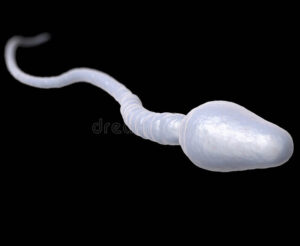What Does Aspermatism Means? | Symptoms, Risk, Prevention and Treatment
Aspermatism is the inability to secrete or ejaculate semen. Aspermatism is also known as Aspermia. Do you want to know what does aspermatism means?
This article will look in-depth at aspermia risk, symptoms, and prevention. Furthermore, we will also tell you about the treatment of aspermatism. Now, if that sounds interesting to you, then let us begin.
Table of Contents
Aspermatism | Symptoms, Risk, Prevention, and Treatment
Male infertility is caused by Aspermia, which restricts sperm release from the testicles. Although Aspermia does not result in low sperm counts, it does result in a lack of ejaculated fluid in males. The treatment for this condition may differ depending on the underlying cause and the complete diagnosis. Despite ejaculation, males suffering from this condition may feel orgasm.

The condition may be caused by several factors, including retrograde ejaculation, ejaculatory duct obstruction, and anejaculation. Aspermia may develop due to previous surgical procedures, nerve injury caused by disease, or congenital cysts, all of which are curable disorders.
Symptoms of Aspermatism
The most dangerous indication is a complete absence of sperm after ejaculation. Another set of indicators that a man may be suffering from the disease is as follows:

- It is uncertain whether or not the sperm contains any blood.
- Anejaculation
- PCOS symptoms include scrotal discomfort, genital pain, and urine pain.
- Urine that has become hazy as a result of a sexual encounter
Risk
Aspermia is related to various risk factors, all of which must be addressed in tandem with this illness’s treatment. Risk factors include the following:
- Inflammation of the prostate gland is a medical disorder that affects males.
- An illness that occurs during birth
- Multiple sclerosis (MS) is a neurological illness that affects the whole body.
- Parkinson’s disease is a neurological condition that impairs mobility.
- The urethra is somewhat blocked.
- Testicular abrasion
Prevention
Urinary tract infections may increase the probability of ejaculatory obstruction. Thus, they should be treated with antibiotics as soon as the illness is discovered. This may help prevent Aspermia produced by a track blockage to some extent. However, there is no way to prevent the other causes from happening.
Do you want to know what the difference between Azoospermia and Aspermia is?
Treatment of Aspermatism
Several approaches may be utilized to relieve the ailment symptoms, depending on the exact cause of the sickness. Among the various treatment, alternatives are surgical methods, anti-infection drugs, and artificial insemination.
Intracytoplasmic Sperm Injections are one kind of assisted reproductive method that may help a fertile woman conceive if she is unable to do so naturally.
